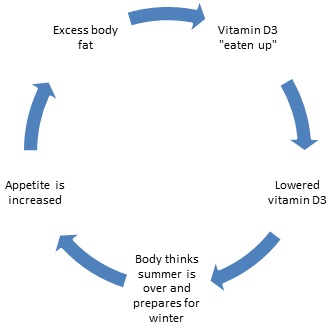| Nutrient |
Deficiency Rate |
Typical Symptoms and
Diseases |
| Biotin |
Uncommon |
Dermatitis, eye inflammation, hair loss, loss
of muscle control, insomnia, muscle weakness |
| Calcium |
Average diet contains 40 to 50% of RDA* |
Brittle nails, cramps, delusions, depression,
insomnia, irritability, osteoporosis, palpitations, peridontal disease, rickets, tooth
decay |
| Chromium |
90% of diets deficient |
Anxiety, fatigue, glucose intolerance,
adult-onset diabetes |
| Copper |
75% of diets deficient; average diet contains 50% of RDA* |
Anemia, arterial damage, depression, diarrhea,
fatigue, fragile bones, hair loss, hyperthyroidism, weakness |
| Essential fatty acids |
Very common |
Diarrhea, dry skin and hair, hair loss, immune
impairment, infertility, poor wound healing, premenstrual syndrome, acne, eczema, gall
stones, liver degeneration |
| Folic acid |
Average diet contains 60% of RDA*; deficient in 100% of
elderly in one study; deficient in 48% of adolescent girls; requirement doubles in
pregnancy |
Anemia, apathy, diarrhea, fatigue, headaches,
insomnia, loss of appetite, neural tube defects in fetus, paranoia, shortness of breath,
weakness |
| Iodine |
Uncommon since the supplementation of salt with iodine |
Cretinism, fatigue, hypothyroidism, weight
gain |
| Iron |
Most common mineral deficiency |
Anemia, brittle nails, confusion,
constipation, depression, dizziness, fatigue, headaches, inflamed tongue, mouth lesions |
| Magnesium |
75 to 85% of diets deficient: average diet contains 50 to
60% of RDA* |
Anxiety, confusion, heart attack,
hyperactivity, insomnia, nervousness, muscular irritability, restlessness, weakness |
| Manganese |
Unknown, may be common in women |
Atherosclerosis, dizziness, elevated
cholesterol, glucose intolerance, hearing loss, loss of muscle control, ringing in ears |
| Niacin |
Commonly deficient in elderly |
Bad breath, canker sores, confusion,
depression, dermatitis, diarrhea, emotional instability, fatigue, irritability, loss of
appetite, memory impairment, muscle weakness, nausea, skin eruptions and inflammation |
| Pantothenic acid (B5) |
Average elderly diet contains 60% of RDA* |
Abdominal pains, burning feet, depression,
eczema, fatigue, hair loss, immune impairment, insomnia, irritability, low blood pressure,
muscle spasms, nausea, poor coordination |
| Potassium |
Commonly deficient in elderly |
Acne, constipation, depression, edema,
excessive water consumption, fatigue, glucose intolerance, high cholesterol levels,
insomnia, mental impairment, muscle weakness, nervousness, poor reflexes |
| Pyridoxine (B6) |
71% of male and 90% of female diets deficient |
Acne, anemia, arthritis, eye inflammation,
depression, dizziness, facial oiliness, fatigue, impaired wound healing, irritability,
loss of appetite, loss of hair, mouth lesions, nausea |
| Riboflavin |
Deficient in 30% of elderly Britons |
Blurred vision, cataracts, depression,
dermatitis, dizziness, hair loss, inflamed eyes, mouth lesions, nervousness, neurological
symptoms (numbness, loss of sensation, "electric shock" sensations), seizures.
sensitivity to light, sleepiness, weakness |
| Selenium |
Average diet contains 50% of RDA |
Growth impairment, high cholesterol levels,
increased incidence of cancer, pancreatic insufficiency (inability to secrete adequate
amounts of digestive enzymes), immune impairment, liver impairment, male sterility |
| Thiamin |
Commonly deficient in elderly |
Confusion, constipation, digestive problems,
irritability, loss of appetite, memory loss, nervousness, numbness of hands and feet, pain
sensitivity, poor coordination, weakness |
| Vitamin A |
20% of diets deficient |
Acne, dry hair, fatigue, growth impairment,
insomnia, hyperkeratosis (thickening and roughness of skin), immune impairment, night
blindness, weight loss |
| Vitamin B-12 |
Serum levels low in 25% of hospital patients |
Anemia, constipation, depression, dizziness,
fatigue, intestinal disturbances, headaches, irritability, loss of vibration sensation,
low stomach acid, mental disturbances, moodiness, mouth lesions, numbness, spinal cord
degeneration |
| Vitamin C |
20 to 50% of diets deficient |
Bleeding gums, depression, easy bruising,
impaired wound healing, irritability, joint pains, loose teeth, malaise, tiredness. |
| Vitamin D |
62% of elderly women's diets deficient |
Burning sensation in mouth, diarrhea,
insomnia, myopia, nervousness, osteomalacia, osteoporosis, rickets, scalp sweating |
| Vitamin E |
23% of male and 15% of female diets deficient |
Gait disturbances, poor reflexes, loss of
position sense, loss of vibration sense, shortened red blood cell life |
| Vitamin K |
Deficiency in pregnant women and newborns common |
Bleeding disorders |
| Zinc |
68% of diets deficient |
Acne, amnesia, apathy, brittle nails, delayed
sexual maturity, depression, diarrhea, eczema, fatigue, growth impairment, hair loss, high
cholesterol levels, immune impairment, impotence, irritability, lethargy, loss of
appetite, loss of sense of taste, low stomach acid, male infertility, memory impairment,
night blindness, paranoia, white spots on nails, wound healing impairment |



















